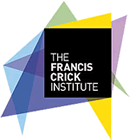About the Project
This 4-year PhD studentship is offered in Dr Rupert Beale’s Group based at the Francis Crick Institute (the Crick).
The aim of this project will be to exploit recent advances in artificial intelligence, in particular techniques involving the generative modeling of images using convolutional neural networks, to refine current analysis techniques for images gathered by conventional and high-content microscopy. Initially, the candidate will employ such techniques to distinguish autophagy from a set of related phenomena. The eventual aim is to utilize these approaches to construct a flow cytometer capable of sorting cells on the basis of patterns of fluorescence.
Autophagy is a process of self-eating whereby cytosolic contents are engulfed and targeted to the lysosome, a digestive organelle. This is important for removal of protein aggregates that might otherwise cause neurodegeneration, cellular homeostasis (for example in response to starvation), removal of damaged organelles (for example defective mitochondria), and cellular self-defence against invading microorganisms. The hallmark of these processes is the formation of a double membrane. This becomes tagged with LC3, an important autophagy molecule that becomes covalently lipidated and inserted into the autophagosomal double membrane. This molecule is conveniently tagged with fluorescent markers such as GFP and is used to monitor autophagy.
We have discovered a distinct molecular basis for a set of pathological processes that target LC3 to single membranes of endolysosomal origin (sometimes called ‘non-canonical’ autophagy), for example in response to ionophore drugs or viral infection (Fletcher et al., EMBO J. 2018). The pattern of GFP-LC3 localisation seen can closely resemble that observed during bona fide autophagy. This has led to confusion in the field as at present it is only possible to distinguish these processes by electron microscopy. The GFP-LC3 patterns that arise appear subtly different to those associated with autophagy. These patterns should in principle be amenable to analysis by machine learning algorithms, and indeed we have preliminary data to suggest that different patterns of LC3 observed using an imaging flow cytometer can be distinguished and quantified using such algorithms.
This will become an extremely valuable tool for the autophagy field as it will enable the rapid and objective discrimination between processes that resemble each other but have different biological purposes, and will likely have similar impact upon other areas of biology. The ability to sort cells on the basis of fluorescence patterns would allow (for example) genetic screens to be performed to uncover the biological basis of protein targeting to different subcellular compartments.
Candidate background
This project requires a high degree of competence in both machine learning and cell biology. Only candidates with significant experience and expertise in both fields will be considered.
Talented and motivated students passionate about doing research are invited to apply for this PhD position. The successful applicant will join the Crick PhD Programme in September 2020 and will register for their PhD at one of the Crick partner universities (Imperial College London, King’s College London or UCL).
Applicants should hold or expect to gain a first/upper second-class honours degree or equivalent in a relevant subject and have appropriate research experience as part of, or outside of, a university degree course and/or a Masters degree in a relevant subject.
APPLICATIONS MUST BE MADE ONLINE VIA OUR WEBSITE (ACCESSIBLE VIA THE ‘APPLY NOW’ LINK ABOVE) BY 12:00 (NOON) 13 NOVEMBER 2019. APPLICATIONS WILL NOT BE ACCEPTED IN ANY OTHER FORMAT.
Successful applicants will be awarded a non-taxable annual stipend of £22,000 plus payment of university tuition fees. Students of all nationalities are eligible to apply.
References
1. Fletcher, K., Ulferts, R., Jacquin, E., Veith, T., Gammoh, N., Arasteh, J. M., . . . Florey, O. (2018)
The WD40 domain of ATG16L1 is required for its non-canonical role in lipidation of LC3 at single membranes.
EMBO Journal 37: e97840. PubMed abstract
2. Beale, R., Wise, H., Stuart, A., Ravenhill, B. J., Digard, P. and Randow, F. (2014)
A LC3-interacting motif in the influenza A virus M2 protein is required to subvert autophagy and maintain virion stability.
Cell Host & Microbe 15: 239-247. PubMed abstract

 Continue with Facebook
Continue with Facebook

